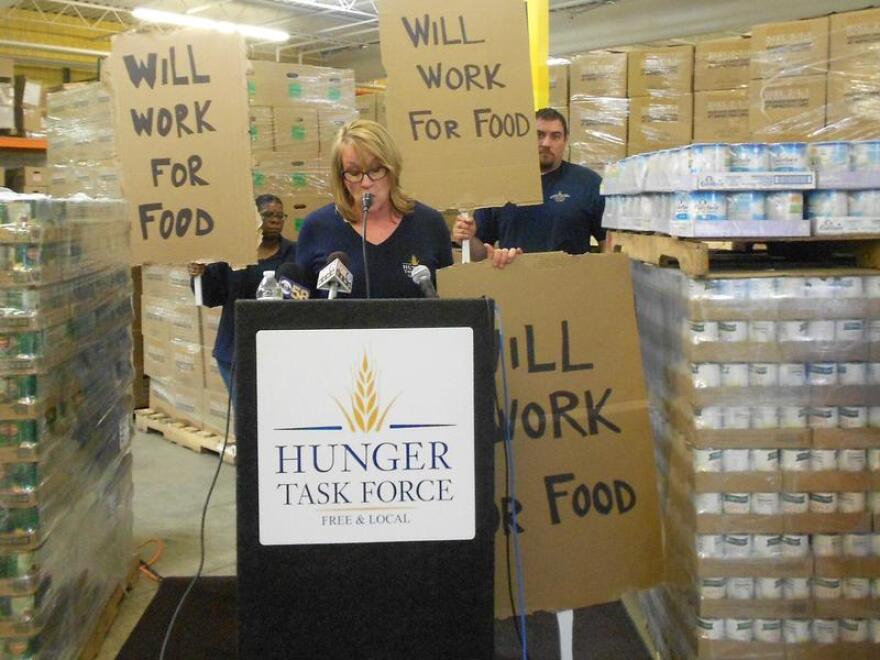It’s been one year since Governor Walker enacted new rules for thousands of FoodShare recipients. Since last April, all able-bodied adults without dependents are required to put in at least 80 hours of work or training a month in order to receive food benefits. The Walker administration is calling the first year a success, while others say thousands of people are going hungry.
FoodShare benefits are designed to be a safety net for people in the most need. The goal of Wisconsin’s year-old work requirement for certain adults in the program is simple, according to Kevin Moore, with the state Department of Health Services. Self-sustainability.
“As the state and as our federal partners say the best way to move out of poverty is to make sure that you have a good paying job,” Moore says.
People who choose not to participate lose their food benefits for three years. Moore says the work program is helping people develop the skills necessary to find work. He says over past year, 12,000 people have benefited. And the jobs usually start at around $10 an hour.
“They range in everything from certified assistant, retail, housekeeping, manufacturing,” Moore says.
Moore says there are tens of thousands of vacant jobs in Wisconsin and the FoodShare work requirement is helping fill those positions.
While 12,000 people have found jobs, Sherrie Tussler says there’s another important number the Walker administration is ignoring. Tussler is executive director of the Hunger Task Force.
“41,000 other Wisconsinites also lost their FoodShare benefits for failure to participate in the FoodShare program,” Tussler says.
Tussler is among a contingent of people asking Gov. Walker to repeal the work requirements in 20 counties and 10 cities. She sees the impact from a different vantage point.
“What we see is increasing demand month over month since last August for emergency food from our food pantry network. It’s not all 41,000 people because those people are sort of dotted across the state of Wisconsin, but thousands each month that were once on FoodShare are now visiting food pantries in Milwaukee,” Tussler says.
Tussler argues that even if every working-age adult wanted a job, there are not enough positions across the state to meet that need.




